Introduction
Summer is here and a good book for reading while on vacation can help you relax and unwind in your time off. This will be a different post than usual, but as helpful as the other posts I hope.
While many books about programming and game development are not that light, in this post I decided to write about some of those that can be read without having your laptop beside you and are not very technical. So no C# in depth or C# in a nutshell books here.
All the following books are in the general game development category, some are about coding, some about project planning and some about the business side of things and general self improvement.
So, without any other delay, here are some books I have read and hope will be helpful to you.
The books
The Pragmatic Programmer
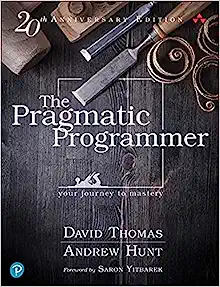
This is a classic book about general programming practices.
There are two editions to this book and although this book is considered a classic, I feel that if you have read the first edition, the second doesn’t add much value. But if you haven’t read it, I recommend it. Especially if you don’t work in the industry for a long time.
Within this book, many industry standard ways of doing things are explained, not only what you should be doing but also why, what you have to gain in the long term, how certain practices make your code and yourself better and how they can help in big projects.
If you work for some time as a programmer in big projects you won’t get much value from this book, as most of the things that are mentioned, you are doing them already. Nevertheless it’s a good read for explaining to new people in the industry the reasons for doing things a certain way, with examples taken from the every day life.
Easy to read, with fun examples and explanations about practices that I have often seen new programmers underestimate.
If you are a programmer that is about to get his first job, or just finishing College and thinking working in the industry, this is a must read.
The Mythical Man-Month: Essays on Software Engineering, Anniversary Edition
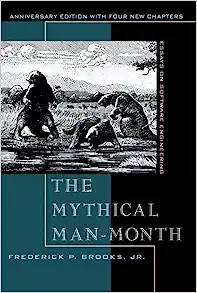
A book more about project planning and how to deal with big projects and less about programming.
This is another classic book and although old (the first edition was published in 1975) the information within is still relevant and invaluable.
The author Frederick Brooks was the project manager for the IBM System/360 computer family. If you think that today’s projects are big, imagine trying to plan a project for a machine that would be the first of its kind. It would offer hardware compatibility while starting everything from scratch. No libraries to use, no frameworks while having to coordinate 1000 people.
The experience from this project is transferable in todays projects. From the most known ideas, like Brooks’s law: adding manpower to a software project that is behind schedule delays it even longer to problems like how to deal with documentation, testing and organization.
This is not a book to read if you are starting a small project, but for any big project is invaluable. Explanations like how small is the percentage of time that actually goes to coding vs planning, thinking and testing. Ways to find the best team size and proper ways of documentation, are all there.
Although some things described in this book may seem out of date, a lot of them hold true to this day.
Rework
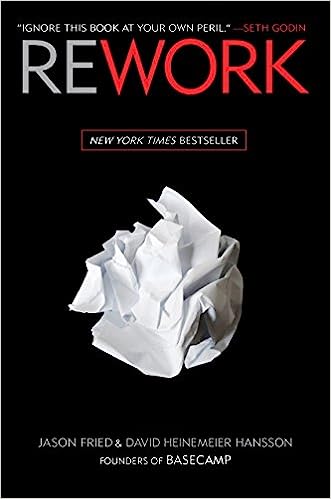
A business book for small companies.
If you think about starting a company or you are the owner of a small company, this is one of the best books I have read about the subject. Maybe because it is written by programmers, but the advice in this book is presented completely different than any other business book I have ever read.
This book is less about step by step instructions and more about general principles on how you should build a successful startup. Ideas about how to deal with remote work, hire people when you really need them, how to use the tools you need as a product that other people can buy, are all described inside.
A small book (about 280 pages) and easy to read, makes it one of the top choices for summer reading for someone thinking to start or is the owner of a small startup.
Getting Things Done
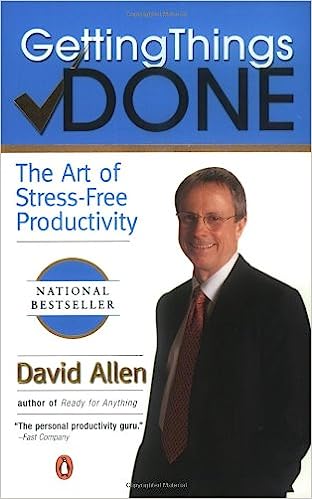
A book about the management of your time.
Although I had read some books about time management and productivity, I could never actually keep my schedule. After reading this book I realized that the problem was not about keeping a tight schedule or the method I was doing it, but that I was too organized.
In contrast with the different methods I had tried, this book is about reducing the stress that can be created by having a lot of things to do.
Inside there are techniques that will allow you to create a schedule that doesn’t constrain or stress you: How to not having a project but small steps that eventually lead to the conclusion of your project, why all the things you have to do, have not the same importance and how to categorize them, so that eventually you can complete all of them.
This book really has helped me with my schedule and actually, I don’t think I could have kept writing this blog as I would have been too stressed with my work to keep a consistent writing schedule.
Read it in the summer, so that you can apply everything you learned as you start fresh when returning from your vacations.
How to win friends and influence people
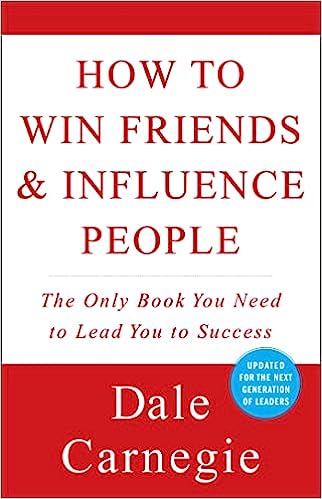
I know, with this title this book looks like a manipulative second rate book about self-helping and making friends.
In reality, this book is about communication. Inside you will read about how to effectively communicate with other people.
As programming is a job that most of the time is being done alone in front of a computer, but the programs you make are for other people, this book can really help with your communication skills. Communication with your clients, your boss or your colleagues.
This is a classic book (written in 1937), but everything written inside is about avoiding and resolving conflict. Ways to express your opinions, communicate effectively and being an effective leader all written with simple and practical examples.
If learning ways for better communication and avoiding conflicts is in your to do list, this is the book to read.
Quiet: The Power of Introverts in a World That Can’t Stop Talking
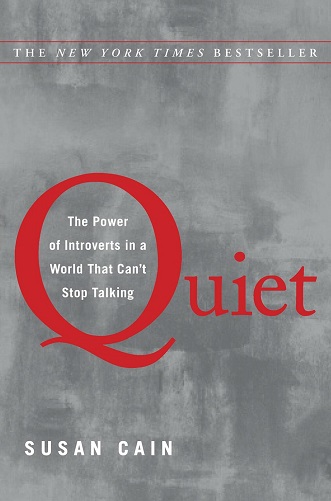
Programming tends to attract many introverts and this book is all about introverts.
How an introvert should approach things. Why things that work for extroverts, don’t work for introverts and ways an introvert should react to every day demands, are described within.
This book is based on the idea that every signal that we receive from our surroundings affects differently introverts and extroverts. An extrovert gains energy from these signals, but for an introvert that can be exhausting.
Someone could see this book as a supplement for the previous one: How to win friends and influence people. If you are an introvert the previous book may suggest ways for communication that you find exhausting. How to prepare for those big meetings to apply what you have learned and how to recharge you batteries, while not feeling bad preferring sitting alone to read a book while everybody else is partying are things that you can find out by reading this book.
Even if you are an extrovert, I still suggest reading it, so that you can understand and not be biased with behaviours that seem strange by introvert people in your circle.
Level Up! The Guide to Great Video Game Design
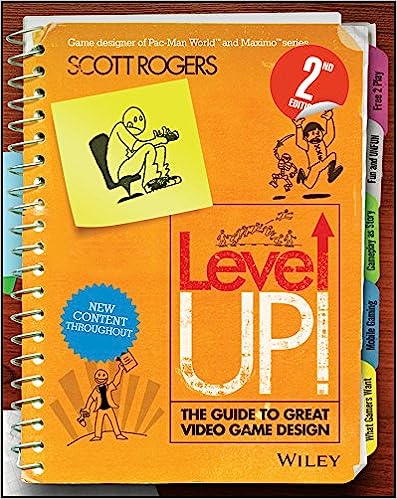
A book about video game design.
If you are looking for an easy to read book about video game design in your vacations then this is it.
Within this book, the process of designing a video game is explained in a simple way. It takes a practical approach and gives tips for most things about video game design.
Although this book is not meant for experienced game designers, I recommend it to anyone who wants to start learning about video game design. It is a little big ( over 500 pages) but a pleasant read for the summer, for an aspiring video game designer.
Into The indies
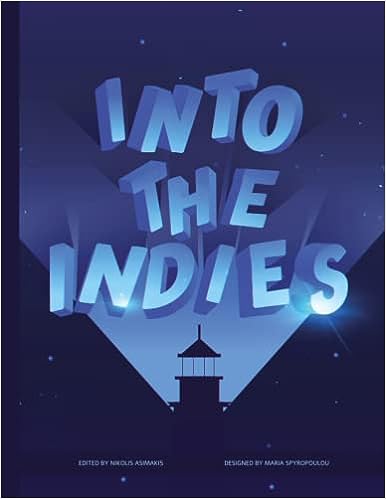
The final book I recommend for the summer, is Into The Indies.
Inside you will find interviews with many indie developers from all over the world. By indie developers, I mean true indie. No AA studios or big budget companies here. Everyday people that have managed to finish a video game and publish it.
Every developer was asked the same questions and gives his answers by the experience accumulated during the production of his game.
A really easy to read book, most interviews are 2-3 pages long, gives insight to the different problems and solutions that each developer had. Definitely a book to read while sitting by the pool or on the beach, where you can read a couple of pages and go for a swim or start conversation without caring about loosing your concentration or finishing the chapter.
Conclusion
These are my recommendations for books in the summer. I have read all the above books and wouldn’t have recommended them if I hadn’t found them useful.
As for this summer, my plan is to read Atomic Habits, The Phoenix Project and A mind at play which is the story of Claude Shannon.
If anyone has a recommendation for a good book, even if it is not an easy to read summer book, I would love to hear from you. I am always in the lookout for good books.
This was a different post than usual, but I hope you found it as useful. Thank you for reading and as always, if you have any questions or comments you can use the comments section or contact me directly via the contact form or by email. Also if you don’t want to miss any of the new blog posts, you can always subscribe to my newsletter or the RSS feed.